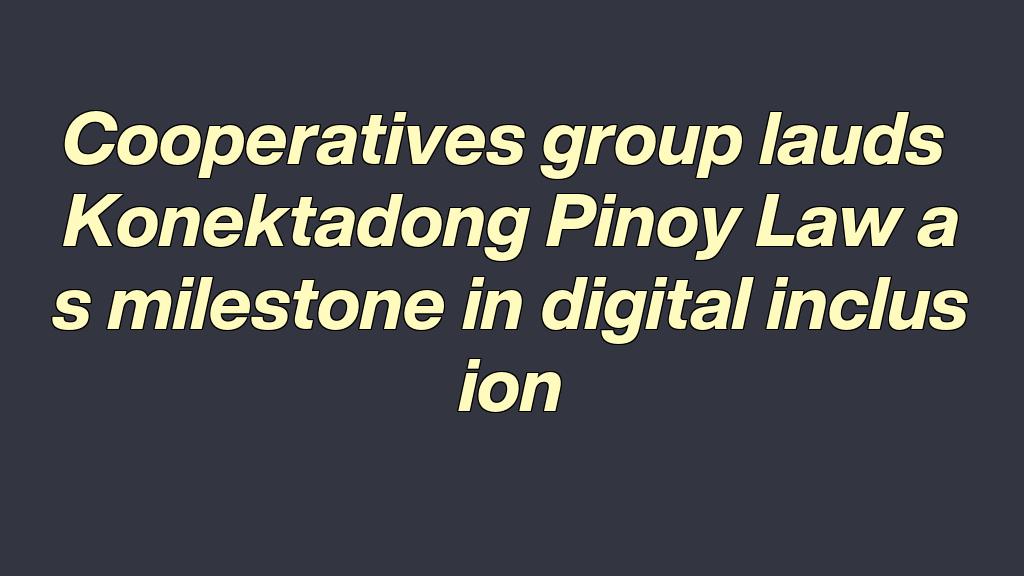THE National Confederation of Cooperatives (Natcco Network) welcomed the enactment of the Konektadong Pinoy Law, describing it as a landmark measure for expanding digital access and financial inclusion in the Philippines.
Formally known as the Open Access in Data Transmission Act, the law lapsed into effect on Aug. 24.
It removes the decades-old requirement for a legislative franchise for new internet providers, allowing more players to enter the market.

Cooperatives group lauds Konektadong Pinoy Law as milestone in digital inclusion
The measure also promotes open-access policies, encourages infrastructure sharing, and seeks to accelerate broadband rollout to improve affordability and bridge digital divides — particularly in rural and underserved areas.
Natcco, a federation of 1,051 cooperatives serving more than 7 million members nationwide, had endorsed the bill’s passage.
On May 1, its board of directors approved a resolution supporting the measure, stressing that reliable and affordable connectivity would help cooperatives digitize operations, expand mobile services, and create new economic opportunities.
“Enhanced connectivity empowers cooperatives, especially those in rural communities, to deliver services efficiently and promote inclusive growth,” the resolution stated.
The group noted that poor internet access has long hampered cooperative services in the countryside, forcing members to travel long distances over poor roads and limited transport options just to complete basic transactions.
With the law now in place, Natcco urged the Department of Information and Communications Technology and other regulators to ensure that the implementing rules and regulations (IRR) uphold fair access principles, enable cooperative-led broadband initiatives, and safeguard data security for end-users.
The IRR is expected to be drafted within 60 to 90 days.
The group also emphasized that reliable internet is critical to the operations of credit cooperatives, whose services depend on smooth interconnection among branches and online financial transactions. “Internet is key to financial inclusion,” Natcco said.
The Philippines has consistently ranked among the countries with the slowest and most expensive internet in Southeast Asia. Franco Jose C. Baroña, This news data comes from:http://www.052298.com
- House panel defers 2026 DPWH budget until agency submits changes
- NBI slaps Alice Guo, 35 Others with new graft, misconduct cases
- PNP chief leads fun run
- Yemen's Huthis hold funeral for PM killed in Israeli strike
- DSWD allocates P6.2B for livelihood program
- Marcos confers diplomatic merit award on two ambassadors
- Konektadong Pinoy bill lapses into law
- Super Sale: Pag-IBIG offers 40% off on foreclosed assets
- Some areas in Metro Manila, Bulacan to have brownouts due to maintenance work
- Housing secretary declares 'zero-tolerance' policy on corruption